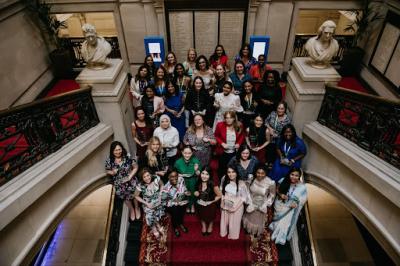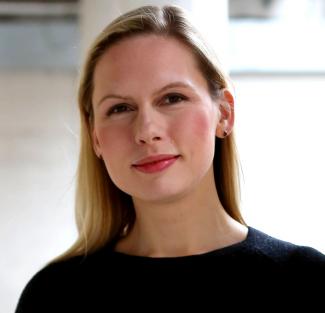Promoting women in engineering - what more should we be doing?
Posted on 24 August 2022
Promoting women in engineering - what more should we be doing?
 Courtesy of Women's Engineering Society (WES)
Courtesy of Women's Engineering Society (WES)By SSI Research Director Caroline Jay.
On 14th July this year, I had the great honour of attending a celebration at the Institute of Civil Engineers hosted by the Women’s Engineering Society and the Guardian newspaper. The event was for the Top 50 Women in Engineering 2022 and the theme this year was ‘Inventors and Innovators’. It was inspiring to see the achievements of so many female engineers and to hear about their journeys. All the women at the event were recognised for their work developing a new technology or process (in my case, an explainable algorithm for ECG interpretation) as well as for their work actively supporting and promoting female colleagues (and here I have to shout out to Alaa Alahmadi, the amazing postgraduate researcher who developed the algorithm during her PhD, and who has also received multiple accolades).
These events can be bittersweet however, as they also remind us of how far we have to go.
Female representation
We have many brilliant female Fellows within the Software Sustainability Institute. Female representation within research software engineering more generally remains low, however. Our analysis of data from the 2018 international RSE survey (preprint here: https://arxiv.org/abs/2104.01712) showed that only 14% are women. We see an equally low proportion of women working within the wider software engineering industry - so we could see this as an issue for computing, rather than research. This perhaps indicates an even bigger problem for the future, though. 46% of people currently working in academia are female. Across the board, research is becoming increasingly computational. If female representation in RSE reflects the software engineering industry (and remains stubbornly low), what are the implications for the research we will do in the future? Is it possible we will see the number of women in academia reduce, or their research become less influential?
There are other ways we can look at the data. The 14% of female RSEs may not reflect the number of women writing code for research, but rather the proportion of a sample who already identify as RSEs. If this is the case, we may need to do a better job of reaching and supporting our female computational researchers.
Increasing diversity
I personally remain optimistic. Recognising an issue is an important first step in resolving it. Improving diversity and creating supportive communities are priorities for the Institute and we are continually reflecting on our approach to this. Over the next 12 months SSI researcher Anita Banerjee will be investigating why RSE is not as diverse as it could be and what we could do to address this. We are also keen to hear from people with research expertise or lived experience of diversity issues. If you’d like to share anything with us that you think could make a difference, please get in touch with Anita.Banerji@manchester.ac.uk.

